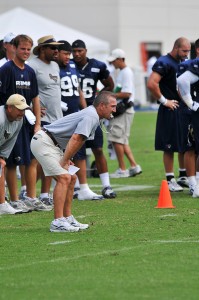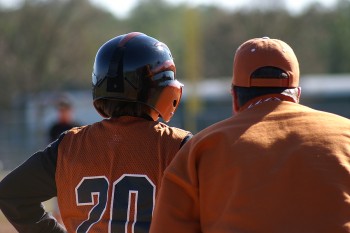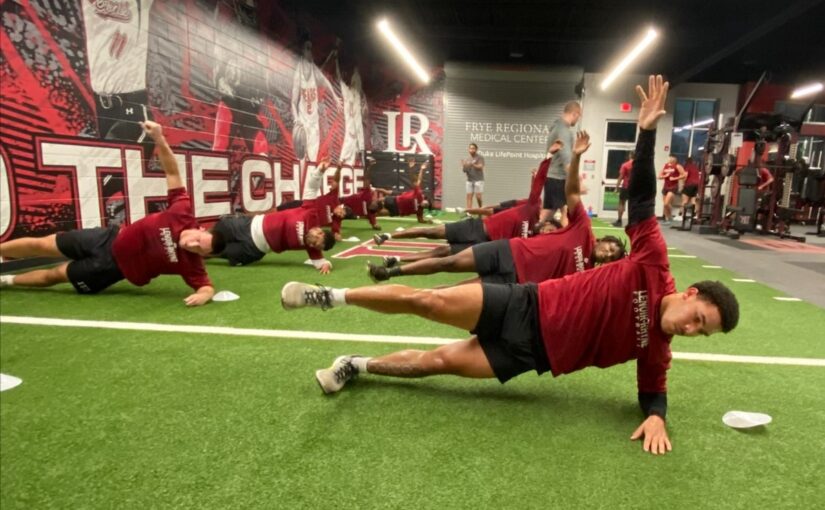Coach…Do You Know Yourself?
When a person understands himself he will understand his basic needs and true motivation and will learn to behave in a manner which will satisfy those needs. Self-understanding will also enable one to understand and relate to other people more effectively. -Abraham Maslow
Everyone has preferences, some are more pronounced; some we’re aware of, others we are not. Behavior is not random or chaotic, by examining a persons behavior over time you begin to notice a pattern of preferences for the way they do things. These patterns provide us with a frame of reference for how we will interact in different situations. Our patterns are a reflection of our personality which distinguishes us from other individuals. Alfred Adler concluded that by the age of five, most individuals have formed character traits or a style of life, which is more or less permanently fixed. The more we understand these basic personality types, the better we are able to predict and understand behavior, our own and that of others with whom we interact.
The S.T.A.R.* Coaching StylesS.T.A.R.* represents the four basic styles of coaching and learning: Searcher, Technician, Analyzer, and Relator. Each style is part of every coachs and athletes repertoire, but like a dominant hand or eye, we have a preference for one or more styles. There is no one best style of coaching or learning. Each style has its assets and liabilities. Flexing your style to meet the needs of a particular situation or of an individual athlete is obviously the best style.
Let us examine the four coaching styles with each styles assets and liabilities:
The Searcher
The Searcher is imaginative and insightful. The searching style is offensive minded. S/he prefers setting up the Big Play to sweating out the details. The Searching coach loves new plays, new strategies and new techniques. S/he generates many more ideas than s/he will actually use, but sometimes frustrates players and fans alike with his/her need to add just one more new wrinkle. The Searcher often sees the aesthetic beauty in a play or strategy. S/he is willing to take risks when necessary, and s/he enjoys improvising. S/he tends to work with bursts of enthusiasm, followed by sudden periods of reflection and abstraction. The Searcher is flamboyant and colorful and s/he feels comfortable standing out in a crowd. A persuasive speaker, s/he knows how to inspire others by putting his/her own and his/her players dreams into words. What s/he says is always what h/he means, and always something more
Assets And Liabilities:
- Sees the big picture but may miss the details.
- Knows when to risk but may be unpredictable.
- Adapts easily to new situations but may have difficulty with routines.
- Generates a lot of new ideas but may not always follow through.
- Sees what needs to be done in the future but may miss what needs to be done today.
Its the spontaneous move, the ability to make the critical play that wins the game. -Bill Walsh
The Technician
 The Technician is practical, matter-of-fact, and disciplined. His/her coaching style emphasizes techniques and execution. The Technician earns his/her players success the old fashioned way; hard work and plenty of sweat for the details. S/he wants his/her players to do it right and s/he is willing to take the whole day and a half the night to get there. Perspiration not inspiration is what counts for the Technician. There is no substitute for thoroughness and discipline. The Technician is suspicious of short cuts and prefers to do things step-by-step. The Technician relies on tried, true and tested methods and may be skeptical of new ideas. The Technicians style of communication is direct and businesslike. What s/he says is what s/he means, nothing more nothing less.
The Technician is practical, matter-of-fact, and disciplined. His/her coaching style emphasizes techniques and execution. The Technician earns his/her players success the old fashioned way; hard work and plenty of sweat for the details. S/he wants his/her players to do it right and s/he is willing to take the whole day and a half the night to get there. Perspiration not inspiration is what counts for the Technician. There is no substitute for thoroughness and discipline. The Technician is suspicious of short cuts and prefers to do things step-by-step. The Technician relies on tried, true and tested methods and may be skeptical of new ideas. The Technicians style of communication is direct and businesslike. What s/he says is what s/he means, nothing more nothing less.
Assets And Liabilities:
- Focuses on the details but may miss the big picture.
- Follow through on his/her commitments but may have trouble adapting to change.
- Acts quickly and decisively but may overlook complexity.
- Speaks directly to the point but may be abrupt and overlook peoples feelings.
- Sees what need to be done today but may miss what needs to be done in the future.
Football is blocking and tackling, everything else is mythology. -Vince Lombardi
The Analyzer
The Analyzer is a systems maker. S/he achieves his/her success by constructing a logical and objective system for winning. His/her style emphasizes cool, detached analysis combined with a real feeling for organization and detail. Of all the styles, the Analyzer feels most comfortable using technology and research to support and enhance his/her teams performance. The Analyzer is patient, detached and meticulous when it comes to considering all the options, strategies and analyzing the other teams assets and liabilities. The Analyzer values athletes who can think on their feet and handle the intricacies of his/her complex systems. Analyzers commit themselves to a particular theory and follow it through.
Assets And Liabilities:
- Analyzes alternatives thoroughly but may have trouble making quick decisions.
- Works well with complexity but may not keep things simple.
- Develops ingenious strategies but may not relate them effectively to others.
- Plans carefully and precisely but may lose touch with his/her peoples feelings.
- Uses technology and research to develop effective systems, but sometimes out thinks him/herself.
Despite the physical nature of the sport, I believe football is mostly a mental game. -Tom Landry
The Relator
 The Relating coaching style has an uncanny ability to motivate and to persuade others to follow him/her into battle. The Relator is adept at getting his/her team ready for the game. Team spirit and morale are of primary importance to him/her. The Relator is a keen observer of human nature. S/he is aware of other people and their feelings. S/he is adept at getting along with most people. The relating coach knows how to take a group of individuals and build them into a cooperative team. The Relator communicates on a personal level. When s/he talks about his/her players and his/her team, it is my team, and our family. S/he is interested in his/her athletes as people and will act on their behalf. His/her concern and caring for his/her players inspires their loyalty, support, and cooperation.
The Relating coaching style has an uncanny ability to motivate and to persuade others to follow him/her into battle. The Relator is adept at getting his/her team ready for the game. Team spirit and morale are of primary importance to him/her. The Relator is a keen observer of human nature. S/he is aware of other people and their feelings. S/he is adept at getting along with most people. The relating coach knows how to take a group of individuals and build them into a cooperative team. The Relator communicates on a personal level. When s/he talks about his/her players and his/her team, it is my team, and our family. S/he is interested in his/her athletes as people and will act on their behalf. His/her concern and caring for his/her players inspires their loyalty, support, and cooperation.
Assets And Liabilities:
- Aware of players needs and personalities but may have trouble separating themselves personally from their decisions.
- Motivates others to perform but may not be able to discriminate effectively among and between others.
- Builds cooperative efforts but may not analyze the situation carefully.
- Listens and responds to others but may not see the big picture.
- Builds trust and confidence but may not organize themselves and other effectively.
I can get away with all this because they like me. If they didnt, the sons of bitches would kill me. -Bum Phillips
In Conclusion
As a coach you must have the vision to see the alternatives available to you, in the game and in the people you lead. You must be able to see the whole picture rather than just part in order to frame your strategies.
This does not mean that we must change who we are. You cannot change a tigers stripes but you can adopt techniques and strategies from each style in order to achieve different goals.
Self-assessment is bout exploring and understanding our patters and preferences. Greater self-knowledge is a necessity if you are to increase your personal power. Self-knowledge leads to greater creativity, a less distorted perception of reality, and a greater control over ones behavior. Self understanding will also help you to better understand and relate to the diversity of individuals you must influence in order to get the most out of their performance.
All four styles are inherent in each of us. We all possess the ability to operate in each of the four styles: Searcher, Technician, Analyzer, Relator. Yet, because of environmental, familial, cultural, and biological influences, we develop a preference for one or two styles.
As an aid or mental picture for thinking about style, picture an amoeba on a grid. The amoeba has a nucleus and a jelly-like protoplasm that is certainly changing in size and shape. The nucleus can be compared to our dominant style or natural preference, and the protoplasm represents the other less preferred styles. When we operate in our dominant style, we are most comfortable and adept. We have a considerable amount of lifes energy in this position. When we are asked to operate outside of our dominant style we have to flex or compensate; although the behavior might not be as natural and we will not feel as comfortable or in control. In other words, each of us can and does operate in all four styles but not with equal facility. We cannot change our dominant style, but we can consciously develop our abilities in the other areas in order to compensate for that which does not come naturally.
For more information, contact Dr. Leibowitz at [email protected], call (731) 531-6868 or visit coachpsych.net.





